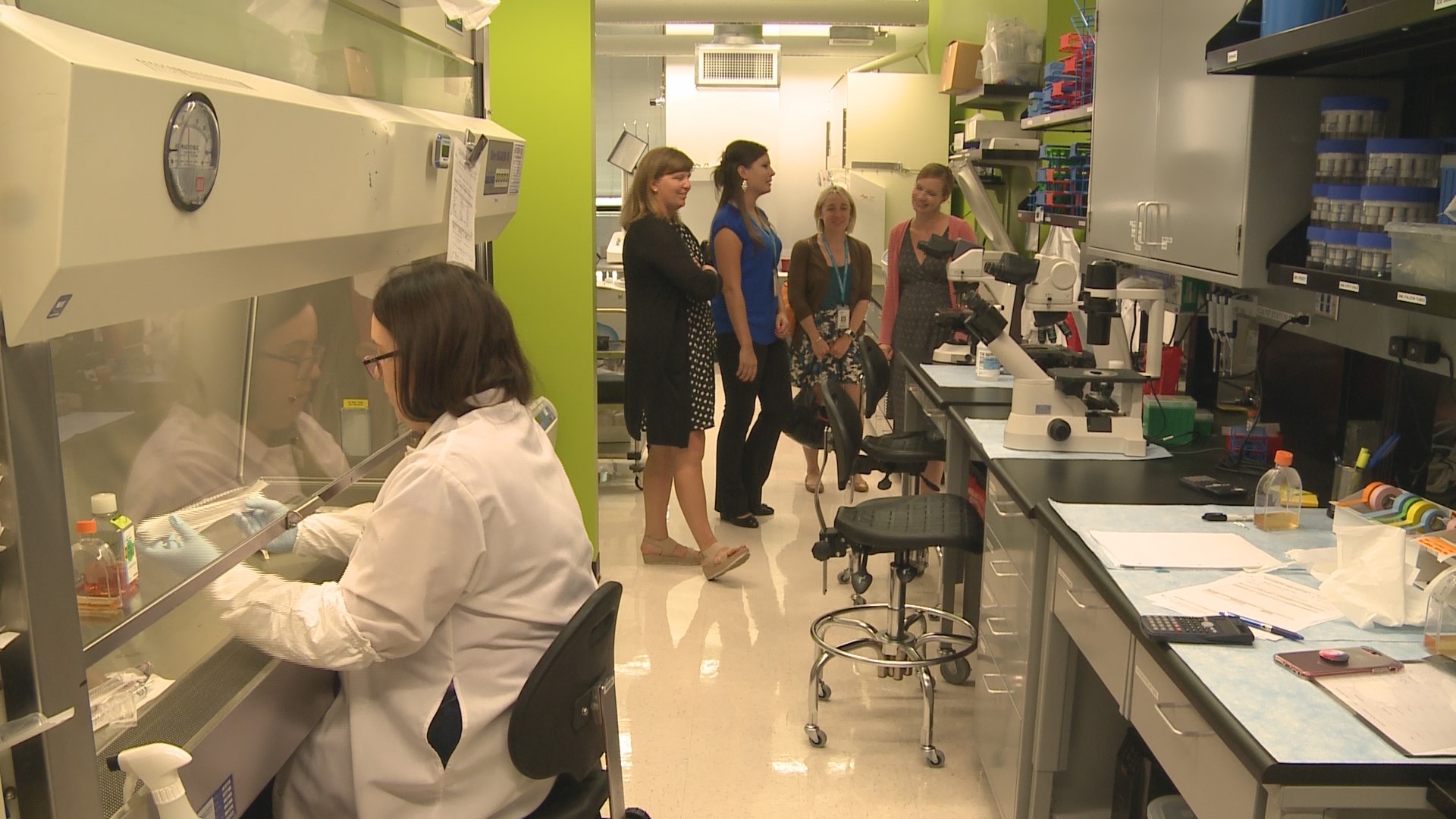Seattle Children's Ben Towne Center for Childhood Cancer Research is actively fighting pediatric leukemia by harvesting and reprogramming a child's own T cells and using the immune system to fight cancer.
Those T cells are collected from the patient and re-engineered into targeted cancer killing CAR-T cells.
“We've achieved phenomenal remission rates. With that therapy more than 90 percent of our kids have gotten into remission. These are kids that were resistant to traditional chemotherapy,” said Dr. Colleen Annesley, an oncologist with Seattle Children’s hospital.
The side effects of leukemia can be lifelong for a growing child who must undergo such harsh treatment. That’s why these new therapies, using the body’s immune system to fight the disease are so important. The side effects with CAR-T therapy are similar to symptoms of flu and are short lived.
That first study called PLAT 02 had a 93 percent success rate, but unfortunately for half of those kids, the cancer came back.
So, scientists responded with another trial.
“We are re-engineering another group of T cells. These are going to be called T antigen presenting cells, and they're going to look like the leukemia cells,” said Annesley.
That trial called PLAT 03 uses a second set of T cells to fool the first set into thinking the leukemia is still active, encouraging the T cells to keep fighting.
But once again, the cancer is trying to survive that treatment too.
“Less than half those patients that relapse, about 40 percent, in our trial develop a CD 19 negative relapse, and what that means is that leukemia has evolved to become resistant and hide from the CD 19 CAR-T cell therapy,” said Corinne Summers, principal investigator for the PLAT 04 Trial.
“What we've developed is a CD 22 car T Cell trial so using the patient’s T cells we again modify them to express a receptor but this time target the CD 22 protein,” said Summers.
The CAR-T cells are programmed to seek and destroy a targeted protein associated with leukemia thus killing cancer.
Previously, the protein called CD-19 had evolved in some patients, causing a relapse. This new approach trains T cells to detect a different protein – CD-22.
Researchers hope this new treatment leads to permanent remission.
“So, that's our hope that we would be able to offer these therapies up front, closer to the initial diagnosis of leukemia and given that we are treating kids and young adults who are still growing and developing we hope to offer a targeted therapy to reduce long-term side effects by reducing the overall amount of chemotherapy they would need,” said Summers.


